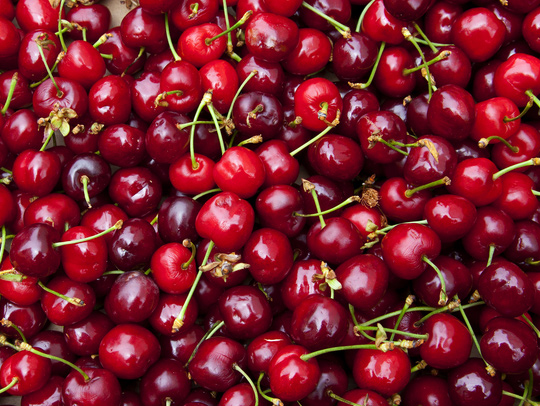Humfeld, Korson honored by Minor Crop Farmer Alliance
January 14, 2020 | 4 min to read

Washington, D.C. – Two industry leaders were recently recognized for their outstanding volunteer work over two decades to ensure the U.S. specialty crop industry can maintain access to safe, cost-effective crop protection tools. The Minor Crop Farmer Alliance honored Phil Korson of Cherry Marketing Institute and Terry Humfeld of Cranberry Institute on Dec. 17, as both men retired from their respective positions at year’s end.
Humfeld and Korson were presented with keepsake chime clocks by MCFA Chair Jim
Cranney of California Citrus Quality Council, joined by MCFA Technical Committee CoChairs Mike Aerts of Florida Fruit & Vegetable Association and Gabrielle Ludwig of Almond Board of California.
“Active and engaged volunteers are the heart of MCFA. Phil and Terry have been reliable leaders who have always been willing to share the responsibilities of running the organization and helping to advance our goals in Washington, D.C. They have made a tremendous difference to this organization and will be greatly missed,“ said Cranney. “They set a high example for the rest of us to follow.”
Korson has been active in MCFA for 25 years, most recently serving for three years as the group’s chairman until his retirement from MCFA earlier this year. Humfeld has been active in MCFA for nine years, including serving as vice-chair.
“MCFA has been a key part of the specialty crop industry’s umbrella for a very long time, and one of the best organizations I have ever worked with,” said Korson. “As we continue to face crop production challenges, this organization is one of our only voices working to bring science and reason back to the dialogue.”
Humfeld urged MCFA members present to carry on the group’s charge, and noted the tremendous ROI that the organization brings to the entire specialty crop industry.
“This group has been one of the best investments our organization and our industry has ever made,” he said in thanks.
MCFA’s work proceeds on domestic, trade fronts
MCFA has advocated since 1991 for legislative and administrative policies that ensure that specialty crop growers will continue to have access to safe, effective crop protection tools.
MCFA also advocates for industry with the foreign governments and agencies that set policy regarding pesticide residues on foods those countries import.
Currently, MCFA is working on several fronts that could seriously impact industry access to effective, affordable crop protection tools.
To help address the fraught Endangered Species Act (ESA) pesticide review process that is currently on a path to significantly curtail pesticide access, MCFA plans to host a workshop in spring 2020 for regulators and other stakeholders. That workshop will explore opportunities to use real-world pesticide use data from growers to develop more realistic rather than overly-conservative ESA-required risk assessments. MCFA has also provided numerous comments to regulators on the ESA pesticide review process.
On the international trade front, MCFA is working with U.S. trade officials and other allies to seek to counter the European Union’s (EU) path toward non-science pesticide policies. The EU plans to cancel registrations for numerous crop protection tools and the related thresholds for residues allowed on foods, which will damage U.S. trade.
MCFA’s International Committee hosted a forum Dec. 17 to coordinate related activities that was attended by federal trade officials including Deputy Assistant U.S. Trade
Representative for Agricultural Affairs Julia Doherty and USDA Foreign Agricultural Service staff, MCFA members from across the specialty crop community, and registrants.
Note to editors: Download photos to accompany this news from the MCFA photo gallery, see the MCFA web page’s Resources section. To scroll through photo options, hover on a photo and click on the right and left arrows that will appear.
About Minor Crop Farmer Alliance
The Minor Crop Farmer Alliance was founded in 1991 to address legislative and administrative policies to ensure the continued availability of crop protection chemicals for minor use crops. Its members include fruit, vegetable, nut, ornamental plant and other specialty crop producer organizations from across the United States. To learn more, visit us online.
